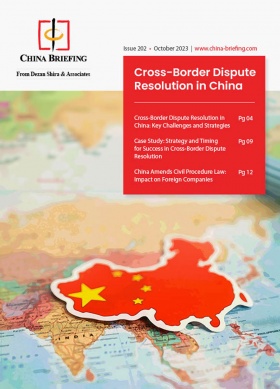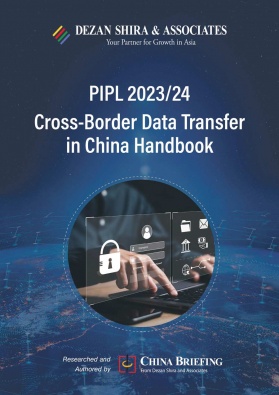Verification Letter of Invitation Requirement in the China Visa Process: A Brief Guide
A Verification Letter of Invitation is required when certain foreigners apply for M/F visas to China such as those from the Middle East. The inviting Chinese company has to ensure the invitees conduct themselves appropriately in China and depart on time as scheduled.
In light of recent developments, the application procedures for business visas to China have undergone substantial simplification. Most foreigners can now apply for an M/F visa using only the invitation letter issued by a Chinese company. Additionally, citizens of certain countries are eligible to enter China without a visa and stay for up to 144 hours or even 15 days.
However, it’s important to note that some applicants may still need to apply for a “Verification Letter of Invitation (邀请核实单)” when applying for an M/F visa to China. In this article, we will introduce what a Verification Letter of Invitation is, who needs to apply for it, and the potential risks.
What is a Verification Letter for Invitation?
A Verification Letter for Invitation is an official document issued by the local Foreign Affairs Office to verify the authenticity of an invitation extended to a foreigner. Among others, the foreign applicant should possess legit identification; the party issuing the invitation letter must be legitimate, either a public unit or a company; and the reasons for the visit should fall within permissible scope. The allowable purposes of the visit include:
- For exchange, visit, investigation(F visa)
- For commercial and trade activities (M visa)
It’s important to note that in most cases, the invitation letter provided by the inviting unit (whether a public entity or a company) is sufficient for M/F visa applications. The Verification Letter for Invitation is only required when the Chinese embassies or consulates in certain countries specifically ask for the document.
Meanwhile, it is also essential to note that obtaining a Verification Letter for Invitation does not guarantee visa approval. The final decision on granting a visa rests with the Chinese embassy abroad, based on the specific circumstances of the applicant.
Difference from the PU/TE letter
The PU/TE letter is also a type of official verification letter that foreigners need to receive before applying for several types of visas. With the PU letter, foreigners could apply Chinese business visa (M visa). With the TE letter, foreigners could apply China visitor visa (F visa). However, these two types of verification letters were mostly applicable during the COVID-19 pandemic. Due to the pandemic control concerns, PU/TE letter issuance was very strict, for which the company needed to prove the project was very urgent and important or foreign invitees would make big contribution to the destination city.
Now, the Verification Letter of Invitation is the most common document to be submitted where a verification letter is required.
Who needs to apply for the Verification Letter for Invitation?
Based on current information, foreign applicants in Sri Lanka and most Middle East countries – such as Türkiye, Iran, Afghanistan, Syria, Pakistan, and so on – need to submit a Verification Letter for Invitation when they apply for a visa to China.
That said, a Verification Letter for Invitation might not be required in a few Middle East countries, such as Saudi Arabia. Therefore, we suggest that foreign applicants consult with their the local Chinese embassy or consulate to confirm in advance.
How to apply for the Verification Letter for Invitation?
The Verification Letter for Invitation needs to be applied for by the inviting Chinese company (inviter) at the local Foreign Affairs Office. The detailed procedures may vary slightly from city to city. But in general, the application may follow the below process:
Step 1: Account setup
The inviting Chinese company must open an online account on the official website of the Foreign Affairs Office. To open the account, the company may need to submit some documents, such as:
- Business License
- ID card or passport of legal representatives
- Company tax payment certificate
- Other required documents
Step 2: Prepare and submit application documents
Once the inviting Chinese company has an account, it can provide information about the invitee and submit relevant documents. The required documents usually include:
- Application Form for Inviting Foreigners to China
- Copy of the invited person’s valid passport (with a validity period of at least six months)
- Invitation Letter issued by the inviting organization
- Guarantee Letter issued by the inviting organization
- Dispatch Letter from the invitee’s current employer
- Government approval document, screenshot of exhibition registration, and relevant documents such as exhibition contracts and booth layouts (for those attending international conferences, exhibitions, or large-scale events in China)
Each document has specific requirements. The reviewing department will evaluate the situation and may request additional documents from the applicant company. Normally, the application process takes 4-5 working days, unless supplementary documents are needed. Once approved, the applicant company can download an Invitation Verification Letter from the online system. The application is free of charge.
If supplementary documents are required or if the submitted documents have deficiencies, the application processing time may be significantly extended. Foreign applicants are advised to allocate sufficient time for the application process to avoid any delays in their travel itinerary
Potential risks for the inviting company
As above mentioned, the Chinese company acting as the inviter for the Verification Letter of Invitation must issue a Guarantee Letter. The Guarantee Letter serves as a commitment that all submitted documents are accurate and authentic. Additionally, the company pledges to supervise and encourage the foreign invitee to adhere to Chinese laws and regulations and depart from China as scheduled.
If the invitee fails to leave China on time or engages in any illegal activities, the company assumes responsibility.
Considering this, companies should exercise caution when inviting foreigners to China. The application for the Verification Letter of Invitation should be grounded in genuine necessity. Additionally, the inviting company must proactively ensure that the invitees conduct themselves appropriately while in China and adhere to departure schedules.
About Us
China Briefing is one of five regional Asia Briefing publications, supported by Dezan Shira & Associates. For a complimentary subscription to China Briefing’s content products, please click here.
Dezan Shira & Associates assists foreign investors into China and has done so since 1992 through offices in Beijing, Tianjin, Dalian, Qingdao, Shanghai, Hangzhou, Ningbo, Suzhou, Guangzhou, Haikou, Zhongshan, Shenzhen, and Hong Kong. We also have offices in Vietnam, Indonesia, Singapore, United States, Germany, Italy, India, and Dubai (UAE) and partner firms assisting foreign investors in The Philippines, Malaysia, Thailand, Bangladesh, and Australia. For assistance in China, please contact the firm at china@dezshira.com or visit our website at www.dezshira.com.
- Previous Article China-Netherlands Relations: Bilateral Trade and Investments Overview
- Next Article Annual CIT Reconciliation in 2024 – A Brief Guide for Companies







